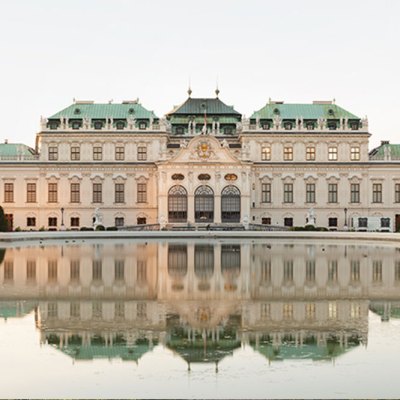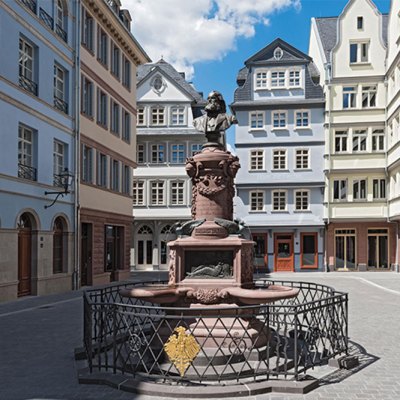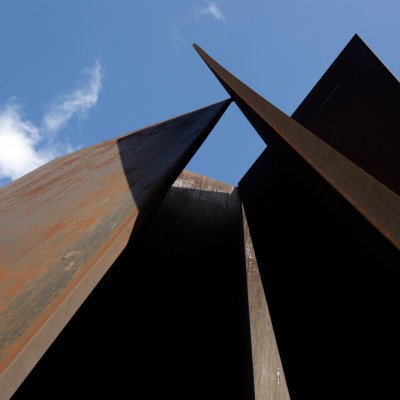 ‘Four things to see this week’ is sponsored by Bloomberg Connects, the free arts and culture app. Bloomberg Connects lets you access museums, galleries and cultural spaces around the world on demand. Download the app here to access digital guides and explore a variety of content.
‘Four things to see this week’ is sponsored by Bloomberg Connects, the free arts and culture app. Bloomberg Connects lets you access museums, galleries and cultural spaces around the world on demand. Download the app here to access digital guides and explore a variety of content.
Each week we bring you four of the most interesting objects from the world’s museums, galleries and art institutions hand-picked to mark significant moments in the calendar.
The innovations of architects such as Zaha Hadid, Lina Bo Bardi, Frank Lloyd Wright and Frank Gehry have not only changed the shape of our urban landscapes and interior spaces. They have also had a profound effect on shifting tastes in art and design.
On the 98th anniversary of the death of Antoni Gaudí, whose extraordinary – and still unfinished – Sagrada Família made his name synonymous with the city of Barcelona, we take a look at cutting-edge designs by some of the most influential architects of the last century.
1. ‘Norman Foster’ exhibition
Centre Pompidou, Paris
Best known for projects such as the Apple Park in Cupertino and the Millennium Bridge and the Gherkin in London, Norman Foster is one of the world’s leading architects – as a major retrospective at the Pompidou in Paris attests (until 7 August). He was mentored by another visionary, Buckminster Fuller, who passed on the importance of ecology and sustainability and whose famous geodesic dome echoes throughout the British architect’s designs. Click here to find out more on the Bloomberg Connects app.
The Great Way (1955), Friedensreich Hundertwasser. Photo: Johannes Stoll/Belvedere, Vienna; © 2023 Namida AG, Glarus, Switzerland
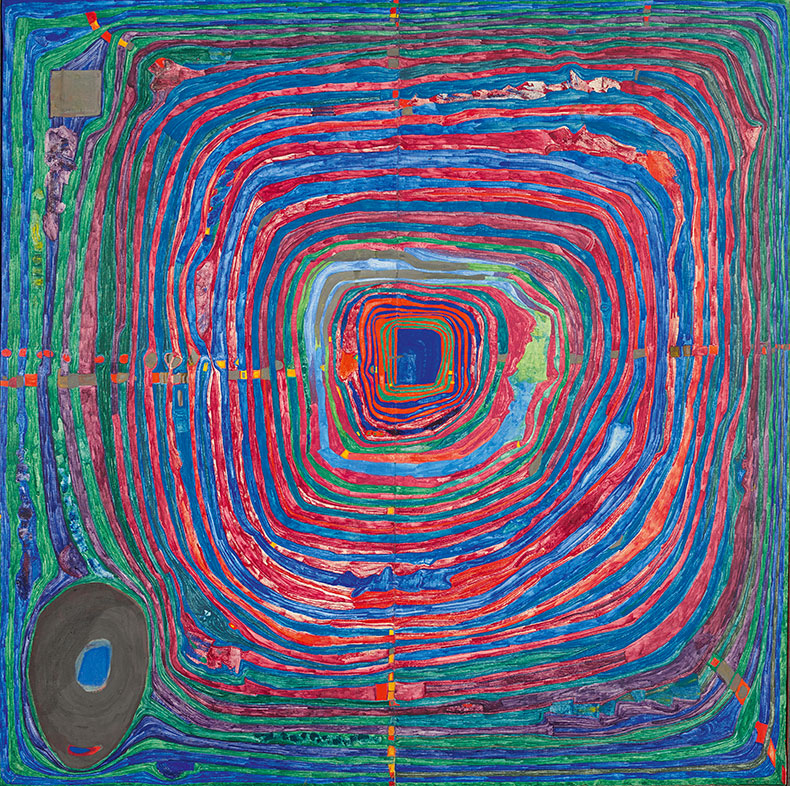
2. The Great Way (1955), Friedensreich Hundertwasser
Belvedere, Vienna
The Austrian artist and architect Friedensreich Hundertwasser embraced nature in his work, rejecting straight lines and minimalism in favour of biomorphic forms and loud ornament. The Hundertwasserhaus in Vienna, perhaps his most famous building, has undulating floors, a living roof and trees planted both inside and outside. Click here to find out more.
Two-leafed gate for Casa Vicens (c. 1883–85), Antoni Gaudí & Joan Oñós workshop
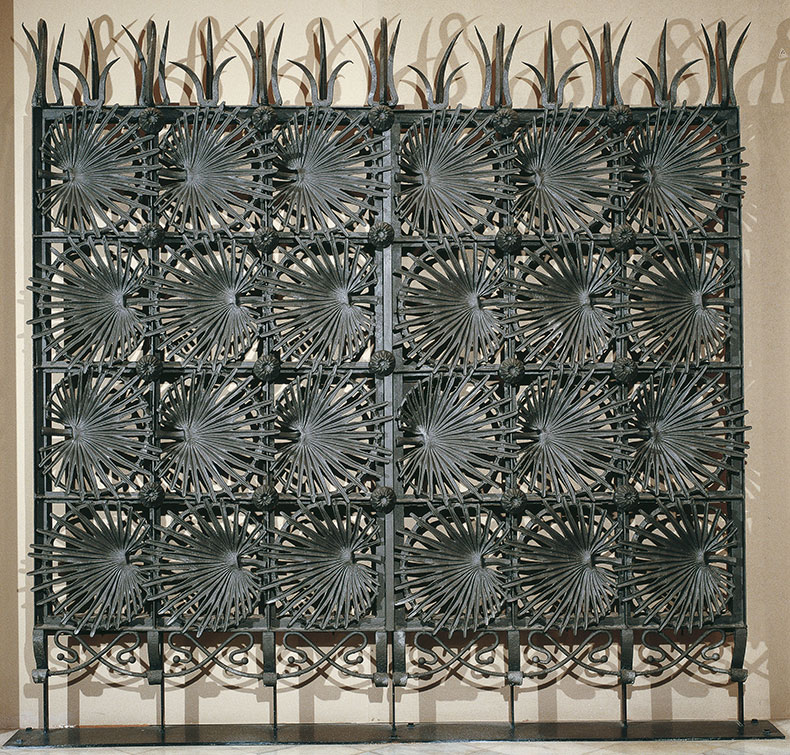
3. Two-leafed gate for Casa Vicens (c. 1883–85), Antoni Gaudí and workshop of Joan Oñós
Museu Nacional d’Art de Catalunya, Barcelona
Inspired by the neo-gothic style as well as the Moorish influence in Spain and the beauty of natural forms, Antoni Gaudí was truly ahead of his time. He thought of each of his buildings as a gesamtkunstwerk, using innovative techniques in ceramics, stained glass, metalwork and carpentry to bring his visions to life. Click here to find out more.
Armchair (for Hous’hill), (1904) Charles Rennie Mackintosh. Photo: Travis Fullerton; © Virginia Museum of Fine Arts, Richmond
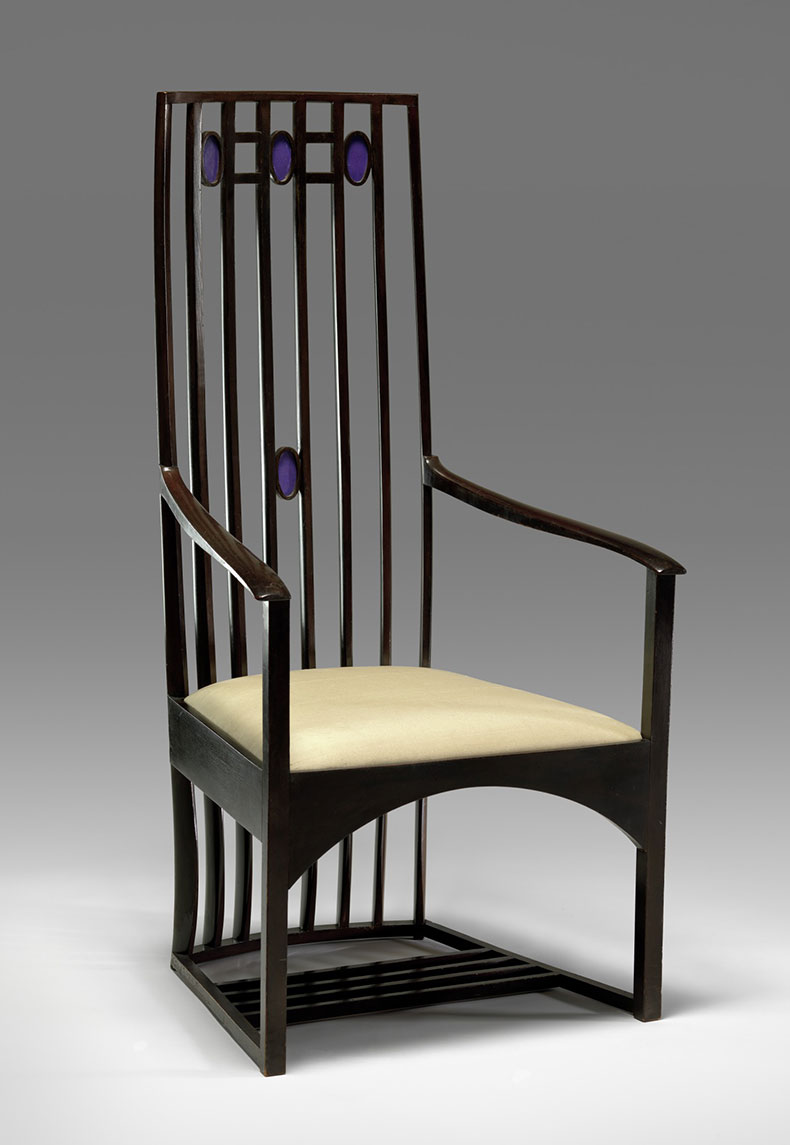
4. Armchair (1904), Charles Rennie Mackintosh
Virginia Museum of Fine Arts, Richmond
The Scottish architect and designer Charles Rennie Mackintosh eschewed the weight and ornament of previous styles in favour of light and space while adding subtle details inspired by nature. In so doing, he sought to emulate the elegance of Japanese design in his interiors and furniture – and played an important role in defining the Modern Style, the British version of art nouveau. Click here to find out more.
Download now
![]() ‘Four things to see this week’ is sponsored by Bloomberg Connects, the free arts and culture app. Bloomberg Connects lets you access museums, galleries and cultural spaces around the world on demand. Download the app here to access digital guides and explore a variety of content or scan the QR code.
‘Four things to see this week’ is sponsored by Bloomberg Connects, the free arts and culture app. Bloomberg Connects lets you access museums, galleries and cultural spaces around the world on demand. Download the app here to access digital guides and explore a variety of content or scan the QR code.

